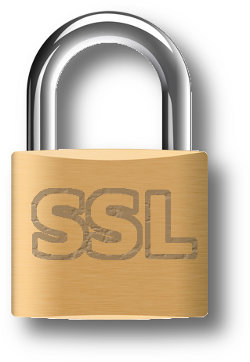While the first traces of http2 support in curl was added already back in September 2013 it hasn’t been until recently it actually was made useful. There’s been a lot of http2 related activities in the curl team recently and in the late January 2014 we could run our first command line inter-op tests against public http2 (draft-09) servers on the Internet.
There’s a lot to be said about http2 for those not into its nitty gritty details, but I’ll focus on the curl side of this universe in this blog post. I’ll do separate posts and presentations on http2 “internals” later.
A quick http2 overview
http2 (without the minor version, as per what the IETF work group has decided on) is a binary protocol that allows many logical streams multiplexed over the same physical TCP connection, it features compressed headers in both directions and it has stream priorities and more. It is being designed to maintain the user concepts and paradigms from HTTP 1.1 so web sites don’t have to change contents and web authors won’t need to relearn a lot. The web will not break because of http2, it will just magically work a little better, a little smoother and a little faster.
In libcurl we build http2 support with the help of the excellent library called nghttp2, which takes care of all the binary protocol details for us. You’ll also have to build it with a new enough version of the SSL library of your choice, as http2 over TLS will require use of some fairly recent TLS extensions that not many older releases have and several TLS libraries still completely lack!
The need for an extension is because with speaking TLS over port 443 which HTTPS implies, the current and former web infrastructure assumes that we will speak HTTP 1.1 over that, while we now want to be able to instead say we want to talk http2. When Google introduced SPDY then pushed for a new extension called NPN to do this, which when taken through the standardization in IETF has been forked, changed and renamed to ALPN with roughly the same characteristics (I don’t know the specific internals so I’ll stick to how they appear from the outside).
So, NPN and especially ALPN are fairly recent TLS extensions so you need a modern enough SSL library to get that support. OpenSSL and NSS both support NPN and ALPN with a recent enough version, while GnuTLS only supports ALPN. You can build libcurl to use any of these threes libraries to get it to talk http2 over TLS.
http2 using libcurl
(This still describes what’s in curl’s git repository, the first release to have this level of http2 support is the upcoming 7.36.0 release.)
Users of libcurl who want to enable http2 support will only have to set CURLOPT_HTTP_VERSION to CURL_HTTP_VERSION_2_0 and that’s it. It will make libcurl try to use http2 for the HTTP requests you do with that handle.
For HTTP URLs, this will make libcurl send a normal HTTP 1.1 request with an offer to the server to upgrade the connection to version 2 instead. If it does, libcurl will continue using http2 in the clear on the connection and if it doesn’t, it’ll continue using HTTP 1.1 on it. This mode is what Firefox and Chrome will not support.
For HTTPS URLs, libcurl will use NPN and ALPN as explained above and offer to speak http2 and if the server supports it. there will be http2 sweetness from than point onwards. Or it selects HTTP 1.1 and then that’s what will be used. The latter is also what will be picked if the server doesn’t support ALPN and NPN.
Alt-Svc and ALTSVC are new things planned to show up in time for http2 draft-11 so we haven’t really thought through how to best support them and provide their features in the libcurl API. Suggestions (and patches!) are of course welcome!
http2 with curl
Hardly surprising, the curl command line tool also has this power. You use the –http2 command line option to switch on the libcurl behavior as described above.
Translated into old-style
To reduce transition pains and problems and to work with the rest of the world to the highest possible degree, libcurl will (decompress and) translate received http2 headers into http 1.1 style headers so that applications and users will get a stream of headers that look very much the way you’re used to and it will produce an initial response line that says HTTP 2.0 blabla.
Building (lib)curl to support http2
See the README.http2 file in the lib/ directory.
This is still a draft version of http2!
I just want to make this perfectly clear: http2 is not out “for real” yet. We have tried our http2 support somewhat at the draft-09 level and Tatsuhiro has worked on the draft-10 support in nghttp2. I expect there to be at least one more draft, but perhaps even more, before http2 becomes an official RFC. We hope to be able to stay on the frontier of http2 and deliver support for the most recent draft going forward.
PS. If you try any of this and experience any sort of problems, please speak to us on the curl-library mailing list and help us smoothen out whatever problem you got!



 shed at the end of October 2016.
shed at the end of October 2016.
